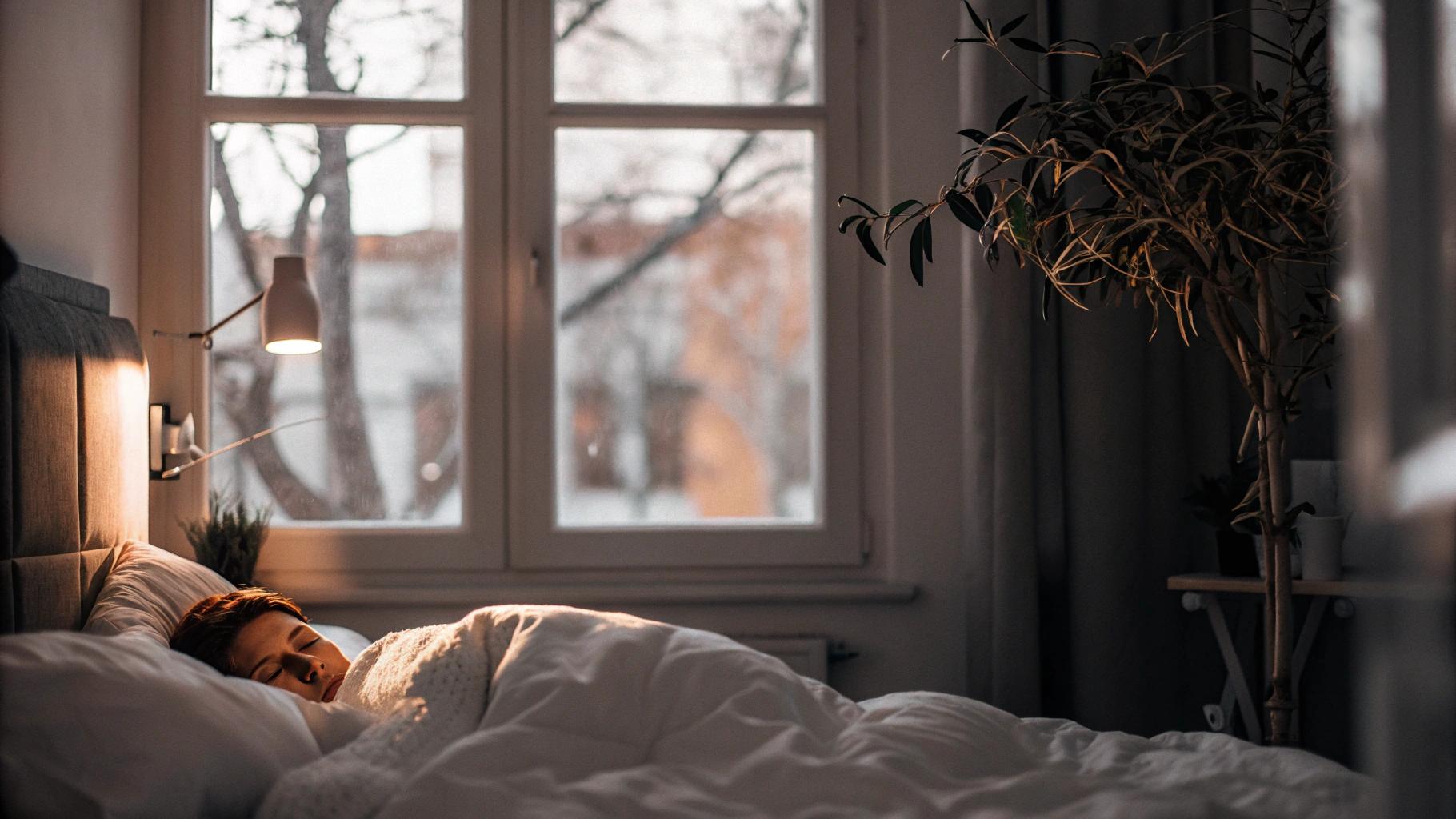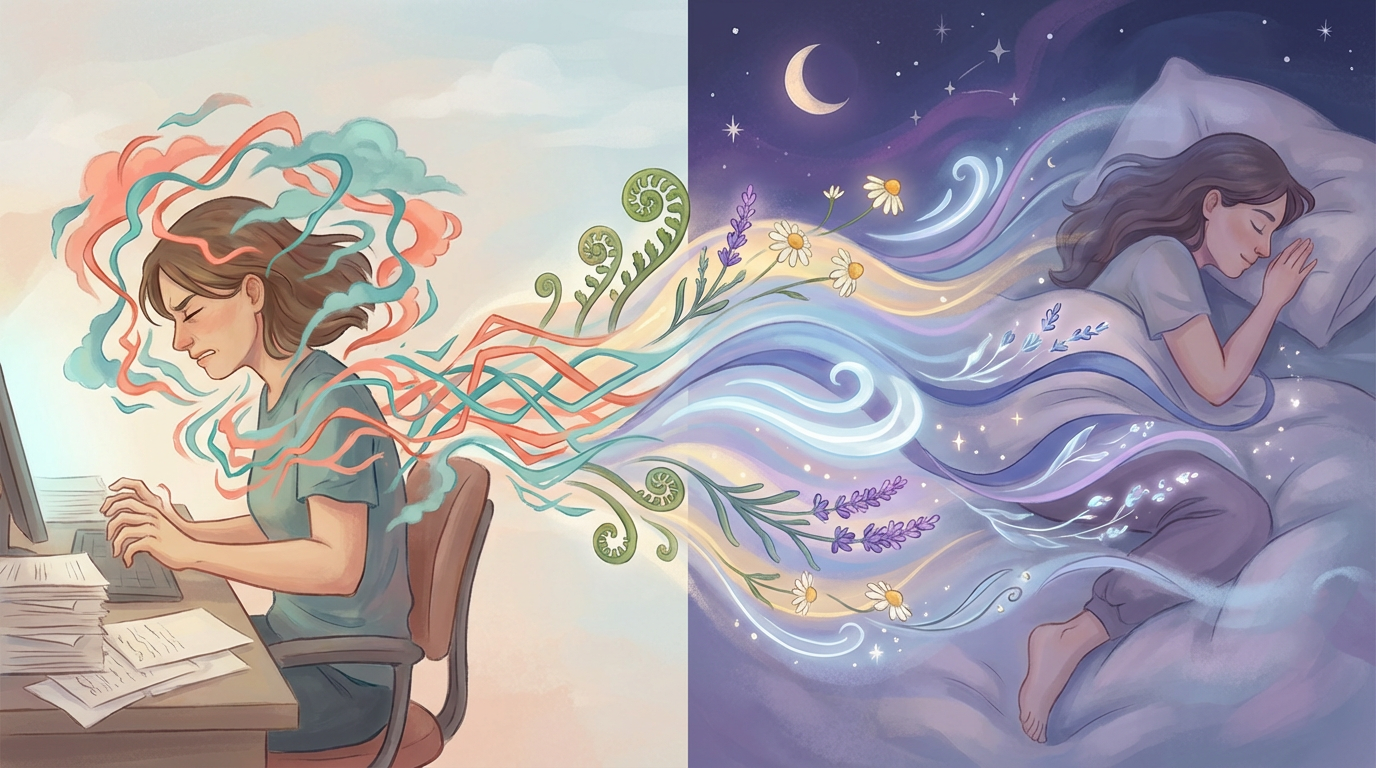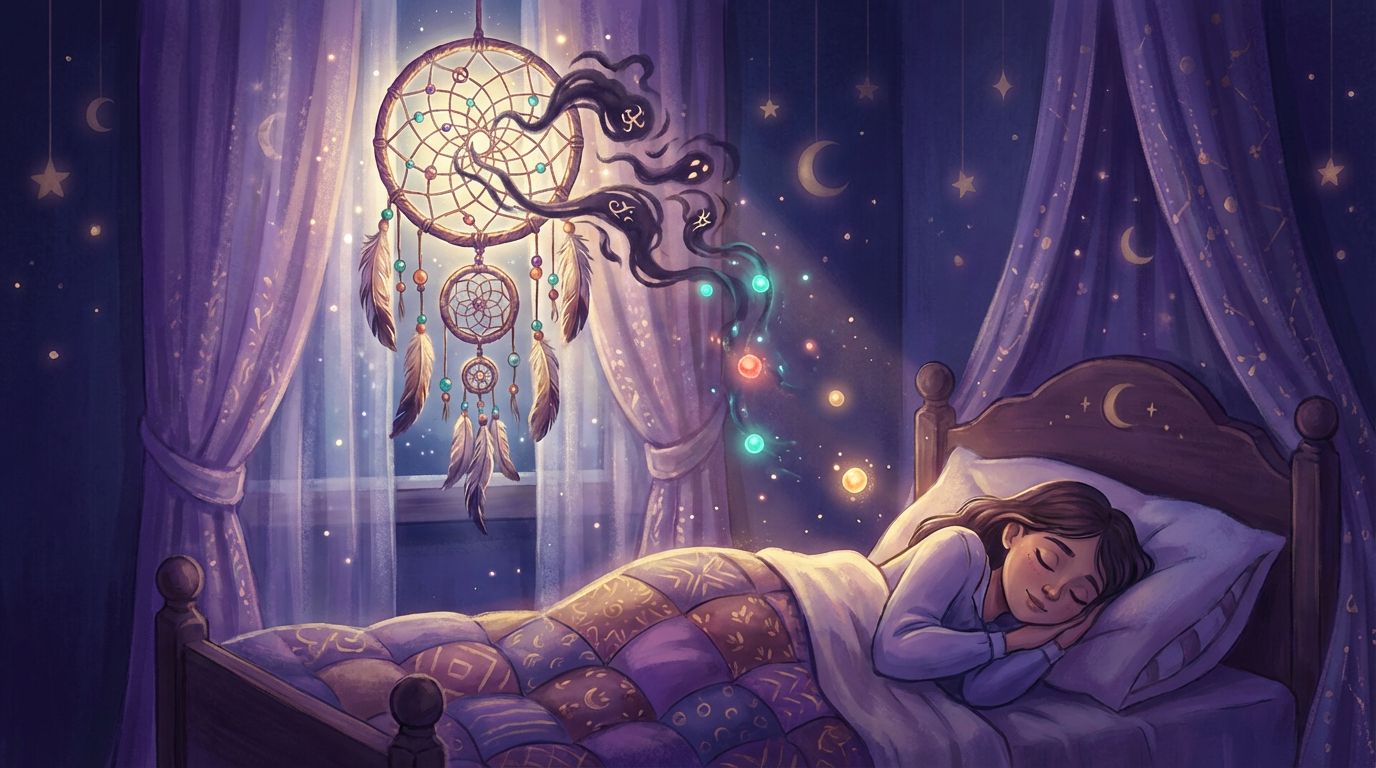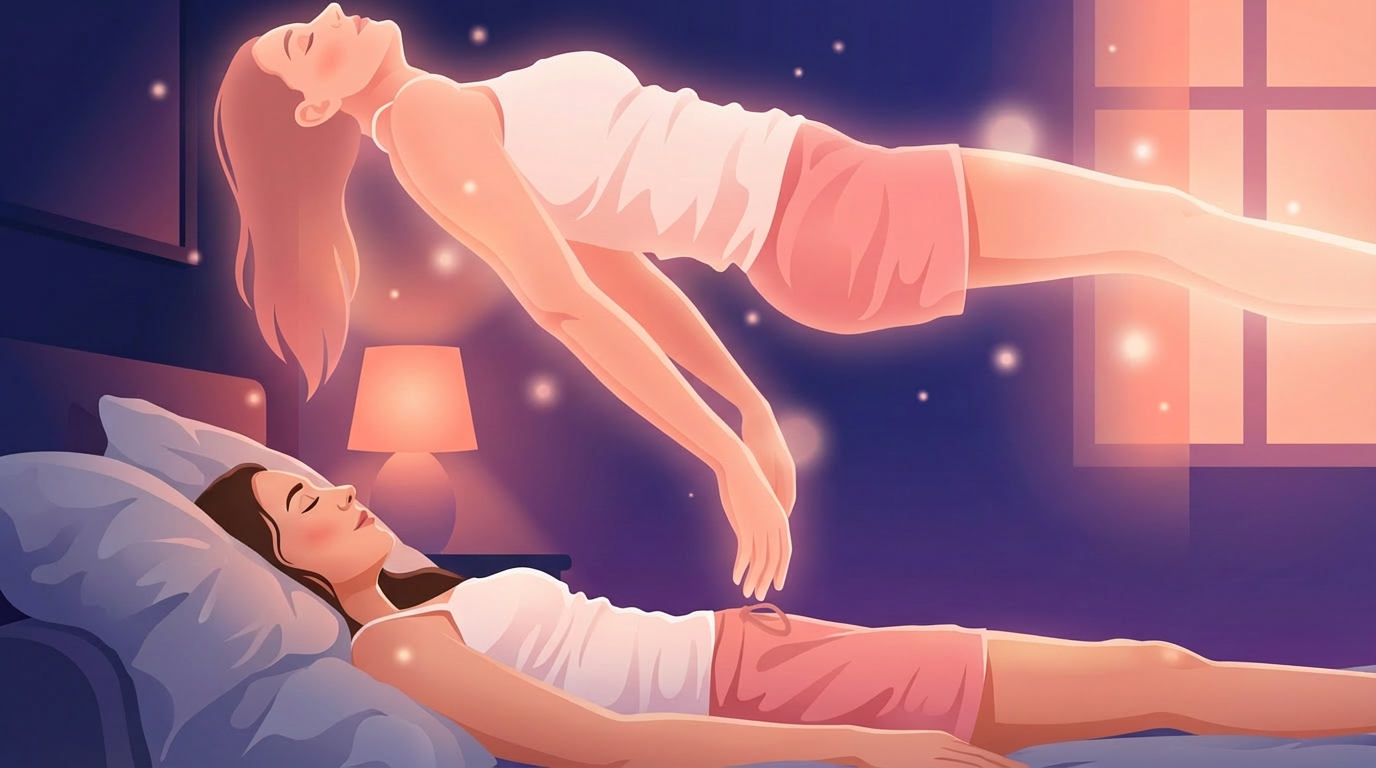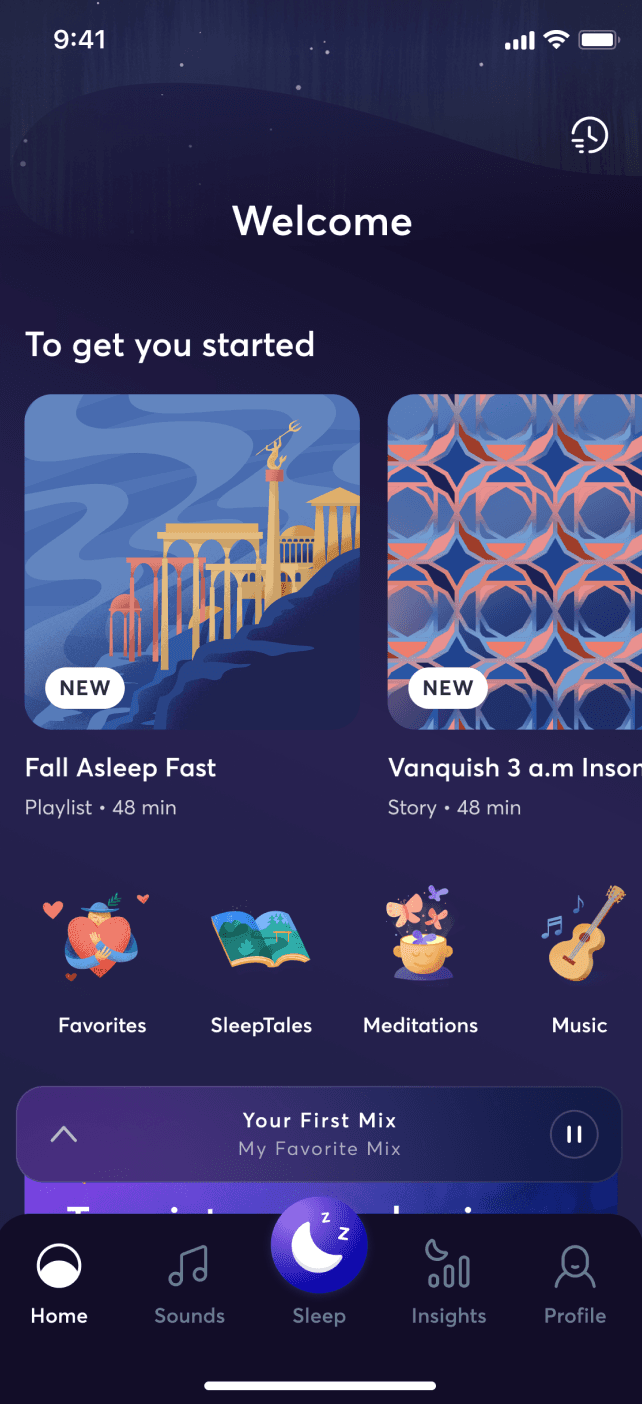
Nightmares Explained
Nightmares happen for reasons no one fully understands and are a fact of life for most people, happening at every age. Some people are more susceptible to nightmares and even develop debilitating patterns that can be symptoms of nightmare disorder, a treatable condition.
If you or your child experiences frequent nightmares and troubling dreams that affect your daily life, you can do something about it. Improving sleep hygiene, managing mental health and stress, meditation, and, in some cases, medical treatment can help reduce the frequency and impact of nightmares.
What Is a Nightmare?
Everyone knows what a nightmare is because we have all experienced one. Like any bad dream, it features fear and other negative feelings like anxiety. The content is disturbing and frightening and can vary significantly from dream to dream and from one person to another.
What distinguishes a nightmare from a bad dream in sleep science is the fact that nightmares wake you from sleep. They are scary and disturbing enough to cause your heart rate to increase and wake you even from a deep sleep.
Facts About Nightmares
Nightmares are common, especially in children. But nightmares are not a major concern for most people. They can disrupt sleep, contribute to sleep disorders, or result in mental health disorders.
Nightmares Are Common
If you have nightmares every once in a while, you are far from alone. At least 85% of adults questioned report having had at least one nightmare in the previous year. Far fewer have them frequently, only 2% to 6%. Frequency of nightmares increases as adults age.
Nightmares Occur During REM Sleep
REM sleep is the final stage of the sleep cycle that repeats multiple times throughout the night. This is the stage in which most dreams occur as your brain activity increases and your eyes move rapidly. Once REM is over, you wake slightly, even if you don’t remember, and cycle back to stage one sleep.
Like other types of dreams, most nightmares occur during REM sleep. As the night progresses, the REM stage in each cycle gets longer. This means you spend more time in REM and are more likely to have nightmares in the second half of the night or early hours of the morning.
Children Are More Vulnerable to Nightmares
Adult nightmares are common, and people can experience them at any age. But, nightmares are more common in children, especially between the ages of 3 and 6. The frequency starts to decline after this in most children. Children are much more vulnerable to dangers of all kinds, which might explain the discrepancy.
Nightmare Disorder Is a Real Condition
You could have a nightmare disorder if you experience more than the occasional nightmare that wakes you and leaves you feeling uneasy and anxious.
You might have nightmare disorder if:
- You have frequent, chronic nightmares
- Nightmares cause you significant distress and anxiety during the day or fear of going to bed
- You have difficulty concentrating because of nightmare images or memories
- You are sleepy during the day and can’t function properly
It’s important to take nightmare disorder seriously in children and adults. It can cause significant daytime dysfunction and sleepiness, school and behavior problems, and mood changes. Chronic nightmares can trigger or worsen mental illnesses, like anxiety disorder and depression. It might even cause suicidal thoughts.
Doctors, therapists, and sleep specialists can treat nightmare disorder in several ways, depending on the underlying causes. Some people benefit from psychological treatment for underlying mental illness. Medical care for a physical condition can help. Therapies that help people learn to change how nightmares end can also be useful.
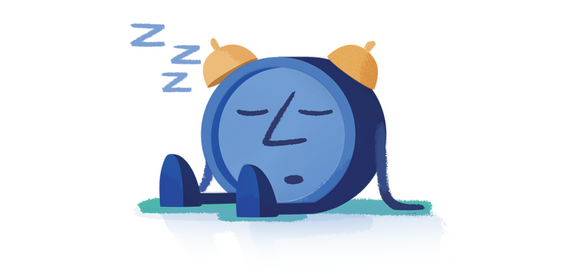

What Causes Nightmares?
For most people, occasional nightmares are not likely a symptom of a sleep disorder or other underlying condition. There is often not even a precipitating event. Nightmares are often spontaneous, but sometimes you can pinpoint a cause. Common triggers for a nightmare include:
- A snack too close to bedtime causes the brain to be more active during sleep
- Certain medications, especially those that act in the brain
- Withdrawal from an addictive substance
- Stress
- Sleep deprivation
- A traumatic or disturbing event during the day
There are also several conditions associated with nightmares or with nightmares as a symptom:
Sleep Disorders
Any sleep disorder that causes sleep deprivation can lead to nightmares. This includes insomnia and sleep apnea. The latter, specifically, might trigger nightmares related to difficulty breathing or suffocating.
Medical Conditions
Certain medical conditions aside from sleep disorders often co-occur with nightmares. Experts don’t fully understand why, but you are more likely to have nightmares if you have cancer, Parkinson’s disease, heart disease, chronic pain, or kidney disease with dialysis treatment.
Mental Health Conditions
More likely to trigger nightmares are mental illnesses and symptoms. Even if you don’t have a diagnosed mental illness, during times of increased stress, anxiety, depression, or grief, you are more susceptible to nightmares.
People with specific mental illnesses report more persistent nightmares. These include anxiety, depression, bipolar, schizophrenia, and personality disorders. Some medications that treat these conditions, like antidepressants, can cause nightmares.
Post Traumatic Stress Disorder
A mental illness most likely to cause nightmares more frequently is post-traumatic stress disorder or PTSD. PTSD occurs in some people after experiencing or witnessing a traumatizing event. Some events that might trigger PTSD include being a victim of or witnessing violence, a car accident, a natural disaster, or experiences from active military service.
PTSD causes a range of debilitating symptoms, including intrusive memories. These can take the form of flashbacks while awake but also as nightmares. In addition to the intrusive thoughts, anxiety, stress, and other emotions, PTSD can cause and worsen insomnia, making nightmares even worse and more frequent.
For someone with PTSD and nightmares, treating the underlying mental illness is essential. Treatments for PTSD are effective and help manage all aspects of the condition. PTSD does not improve with time and requires treatment to avoid ongoing distress and dysfunction.
Family History
A tendency to have nightmares might also just be bad luck. Genetics might play a role. If your parents or other family members have issues with nightmares, you are more likely to have them as well. This connection might be related to the fact that mental illnesses that cause nightmares are also genetic to some degree.
How to Cope with Frequent Nightmares
Nightmares do not have to rule your life. There are steps you can take to improve your sleep and mental health, reducing the frequency of these terrible dreams. If they don’t help, it could be time to see your doctor to determine an underlying cause or to find out if you have a nightmare disorder.
Maintain a Steady Sleep Schedule
Anything you can do to improve your sleep hygiene will help you sleep better and lessen the chance of nightmares. Sleep hygiene is a set of habits that promote good sleep. One of the most fundamental of these habits is having a routine.
Decide on a bedtime and a time to wake up in the morning and stick with the schedule. Even on weekends, be consistent for the best sleep result. A schedule trains your mind and body to go to sleep at a particular time, reducing the time it takes you to fall asleep. The stress and anxiety of lying awake at night can make nightmares worse.
Create a Soothing Bedtime Routine
In addition to a set bedtime, creating a routine that signals to your mind that it’s time to sleep is a good option. Bedtime anxiety is a big issue if you have nightmares. Anything you can do to relax, unwind, and ease stress and anxiety at night will help.
Create a plan that works for you. It could include a warm bath, a hot cup of tea, a good book that isn’t too stimulating, relaxing music or sounds, or a meditation session. Avoid watching television, scrolling through social media, or checking work emails. Also, avoid alcohol. It relaxes you initially but ultimately disrupts your sleep.
Journal or Use Imagery to Rewrite Nightmares
Borrow a technique from therapists who treat people with PTSD and nightmare disorder. Called image rehearsal therapy, the strategy involves confronting your nightmares and rewriting better endings. The more detailed you can be about the new ending, the better this works.
You can use a nightly journal to reflect on your nightmares and rewrite the endings. You can also use imagery to picture your nightmares and how they can end differently next time.
Most people with nightmares practice avoidance, trying not to think about their dreams. Actively trying to remember them and think them through can be difficult. If you find it makes you feel worse, talk to a therapist or your doctor about trying this technique in a safe, professional environment.
Wear Yourself Out During the Day
The more tired you are at bedtime, the easier it is to fall asleep and the more soundly you will sleep. Exercise is a great way to wear out the mind and body to improve sleep. It’s also excellent for physical and mental health, other factors that could contribute to your persistent nightmares.
For the best results, exercise outside. Exposure to sunlight is another boost to your nighttime sleep. It helps set the body’s natural clock and circadian rhythm.
Avoid exercising too close to bedtime, which can be overly stimulating. Get your workout in earlier in the day and do some gentle stretching or a relaxing walk before bed.
Practice Meditation
Meditation is yet another tool for improving health and, of course, sleep. Regular meditation boosts mood, reduces anxiety and stress, increases focus and attention, and lowers blood pressure. If you can meditate regularly, you should be able to sleep better and, in turn, have fewer nightmares.
Most research into the effects of meditation on sleep involves mindfulness meditation. This practice focuses on the present moment and your sensations and thoughts without judgment. Studies show regular mindfulness meditation significantly improves sleep quality.
For people who experience frequent nightmares, there is an additional benefit. Meditation shrinks the amygdala, a brain structure associated with fear and the stress response. This is why meditation helps you relax and cope better with stress. Meditating regularly could also help you be less fearful at night and while dreaming.
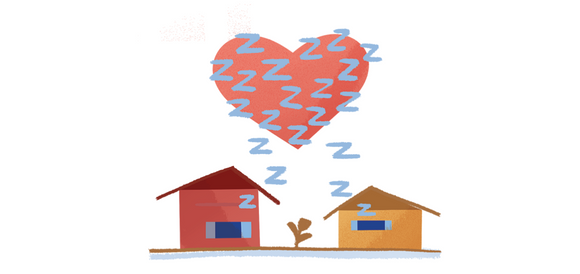

Tools on BetterSleep to Reduce Nightmares
BetterSleep is designed to help you improve your sleep in every way. This includes changing how you dream. First, use the app to improve your sleep overall. For many people, simply sleeping more easily, deeply, and for longer is enough to reduce nightmares.
Several tools on BetterSleep can help you do this while also focusing specifically on changing your nightmare patterns:
Sleep Sounds
As part of your new, soothing bedtime routine, choose a mix of sounds that take you to a happy, relaxed frame of mind. The perfect sleep sound mix is different for everyone, which is why you can find many options on the BetterSleep app.
Many people find nature sounds relaxing and soothing. Try the sounds of a crackling fire mixed with rustling leaves to tap into happy memories of childhood camping experiences, for instance. Or, use the beach and wave sounds to take your mind to a favorite vacation spot.
On the other hand, if your nightmares occur in the deep woods, you might find city sounds more soothing: a distant train, urban rain, an air conditioner blowing, or city ambiance. The right mix will distract your mind from scary thoughts.
Meditations
Guided meditations are among the most powerful tools for improving sleep. BetterSleep has various meditations that can tackle your most pressing sleep problems. If stress is a major trigger for your nightmares, try the De-Stress and Deep Sleep Playlist for a long session or the SOS De-Stress Meditation for a quicker fix.
Try the many meditations focused specifically on dreaming. Direct Your Dreams will help you learn how to change the tone and content. Dreamless Sleep can increase the chance you’ll have no dreams at all
Several self-hypnosis meditations help put you in a suggestable state of mind. These can help you change the course of your sleep and dreams. Try Sweet Dreams Hypnosis or Hypnosis for Pleasant Dreams.
Waking up from a nightmare to find it’s still the middle of the night can be scary and stressful. Turn to the SOS Middle of the Night meditation to change your thought patterns and distract your mind from the bad dream as you fall asleep again.
Bedtime Stories
Stories aren’t just for kids. Adults are increasingly rediscovering the benefits of a soothing, distracting story before bedtime. Reading a book is useful for distracting the mind from stress, anxiety, and scary thoughts about dreams, but being told a story can be even better.
When someone tells you a story in a gentle voice, it primes your mind for peaceful dreams and restful sleep. On BetterSleep, you’ll find stories of different lengths for every night of the week. Some are series, some involve adventures, but all are calming rather than stimulating. They wind your mind down instead of up, setting the stage for fewer bad dreams.
Overheating at night? See more!
How to Help a Child with Nightmares and Bedtime Anxiety
Kids are more likely to have frequent nightmares, and they can learn to cope in similar ways that adults do. Children also benefit from a regular and relaxing bedtime routine. They should go to bed, wake up simultaneously every day, and have a soothing routine that helps them feel safe.
A Safe, Soothing Routine
A routine for a child struggling with nightmares could include a bath, cuddles with mom or dad, and story time. All these things done with the adults who make them feel secure will help reduce fear and anxiety associated with bedtime and sleep.
Talk About Dreams and Nightmares
Children can also benefit from having an outlet for their fears and worries. Be a safe sounding board where they can talk to you about their dreams, what scares them, and how waking up from a nightmare makes them feel.
You might hesitate to talk about these things thinking that doing so will only bring your worries to mind, but keeping things secret only breeds more fear. Talk about your own experiences with bad dreams—without details, of course. Share how it makes you feel and how you cope with these scary situations. It will help your child feel more confident that they can cope.
Meditations for Children
BetterSleep has meditations for kids too. Some children might benefit from any of the meditations available but start with those designed just for young minds. The seven-minute Sweet Dreams meditation is short and easy to follow. It teaches your child how to fill their mind with happy thoughts before bed.
Magical Place is a short journey that trains your child to change their mindset before bed, promoting more pleasant dreams. The Afraid of the Dark No More is great for kids with this specific fear at bedtime.
When to Seek Medical Help for Nightmares
Treating nightmares isn’t necessary for most people. If you or your child have persistent nightmares that disrupt sleep and daytime functioning, and other measures don’t help, see your doctor or pediatrician.
They can give suggestions, rule out medical conditions, and refer you to sleep experts who can treat nightmares with more targeted measures. Therapy, medications, or treating an underlying condition could be appropriate for you or your child.
Recurring nightmares, intense nightmares, and chronic nightmares can be a real problem. If nightmares disrupt your days and nights, it’s time to do something about it. You don’t have to live with scary dreams and their repercussions. Reduce stress and anxiety, work toward better sleep, and talk to your doctor if necessary to see results.







